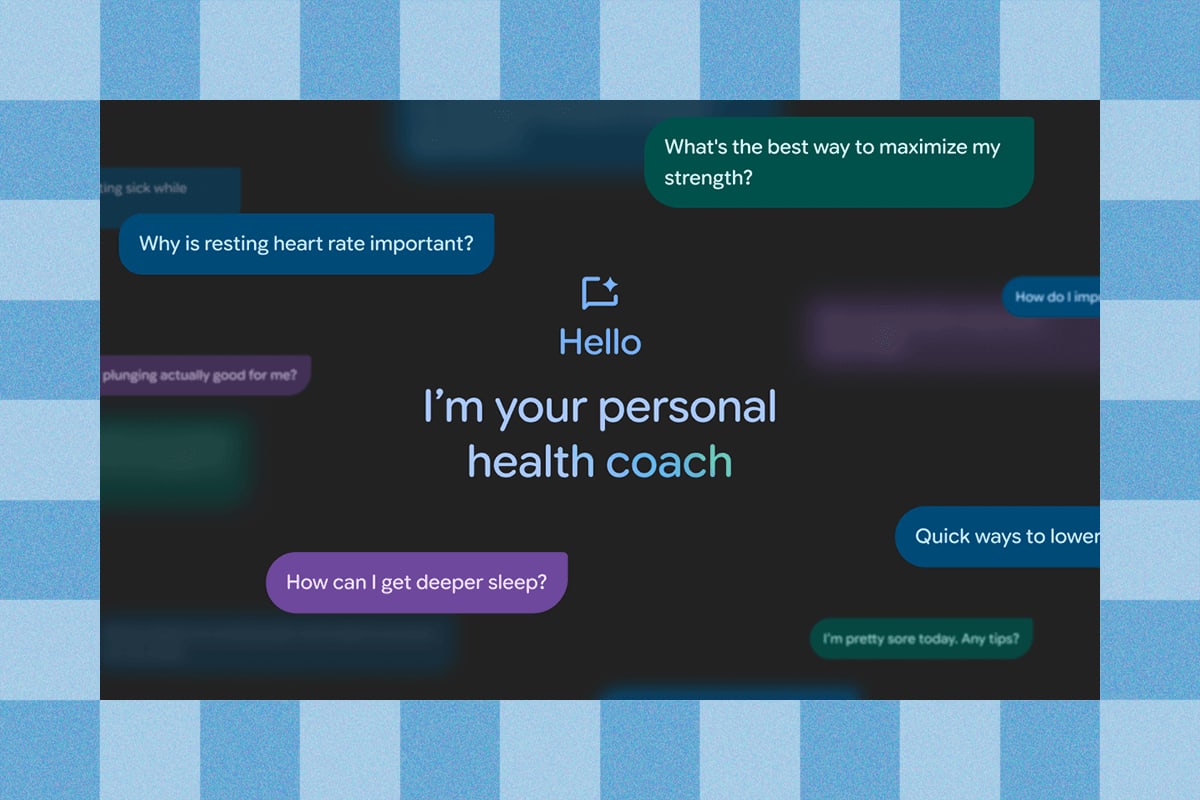Fitbit’s Evolution: The Rise of AI-Driven Health Coaching
 The Tech Times
The Tech Times
In a transformative leap from step counting to sophisticated health guidance, Fitbit is poised to redefine personal fitness and wellness through the integration of artificial intelligence. This evolution is anchored by Google’s AI health coach, Gemini, which is set to revolutionize how users interact with their health data, offering insights that were once the domain of trained healthcare professionals.
A New Era of Personal Health Management
Fitbit's journey began with a simple pedometer, a device that tracked the number of steps taken by its user. It was an era where the main goal was to encourage more physical activity by quantifying movement. However, as the digital health landscape evolved, so did Fitbit’s capabilities. The introduction of heart rate monitoring, sleep tracking, and stress management tools marked the beginning of a more comprehensive approach to health tracking.
Now, with the infusion of artificial intelligence, Fitbit is moving beyond mere data collection. Google’s AI health coach, Gemini, is positioned to offer personalized health advice, interpreting vast amounts of user data to provide actionable insights. This marks a significant shift towards predictive and preventive health management, where the focus is not only on tracking but also on improving overall well-being.
The Historical Context: From Data Collection to AI Insights
Historically, the use of technology in health and fitness has been incremental. The 1970s and 1980s saw the introduction of the first personal fitness devices, like digital pedometers and heart rate monitors. Fast forward to the early 2000s, and we witnessed the birth of wearable technology that could sync with computers and later smartphones. This era was characterized by the ability to store and analyze fitness data over time.
The integration of AI into health apps is a more recent phenomenon, driven by advancements in machine learning and data analytics. AI’s potential in healthcare was first recognized in diagnostic processes, such as identifying patterns in medical imaging. However, its application in personal health management is relatively nascent, with tech giants like Google leading the charge.
The Promise and Potential Pitfalls
The promise of an AI-driven health coach is substantial. Users can potentially receive tailored advice on exercise routines, dietary habits, and sleep patterns, all personalized to fit their unique health profiles. This level of customization can significantly enhance user engagement and adherence to health goals, leading to better health outcomes.
However, this evolution is not without its challenges. The accuracy of AI-driven advice is contingent on the quality and breadth of the data it processes. Moreover, there are ethical considerations concerning data privacy and the extent to which users are comfortable allowing an AI to influence their health decisions.
Additionally, while AI can simulate aspects of personal coaching, it lacks the emotional intelligence and empathy of human interaction. This limitation could impact user trust and the perceived value of AI in personal health management.
Conclusion: A Step Toward a Healthier Future
Incorporating AI into the Fitbit ecosystem is a testament to the ever-growing role of technology in our daily lives. As Google and Fitbit continue to innovate, the potential for AI-driven health coaching to transform personal health management is immense. By intelligently interpreting user data, AI can empower individuals with the knowledge and tools needed to make informed health decisions.
The journey from a simple step tracker to an AI-powered health coach reflects broader trends in technology and healthcare, where personalization and precision are becoming the norm. As this technology continues to evolve, it promises to open new frontiers in the quest for healthier lifestyles.
As we stand on the brink of this new age in personal health, the challenge remains to balance innovation with privacy, ensuring that technology serves as a beneficial partner in our pursuit of well-being.
Source: The Fitbit App Is Turning Into an AI-Powered Personal Health Coach
Subscribe to my newsletter
Read articles from The Tech Times directly inside your inbox. Subscribe to the newsletter, and don't miss out.
Written by
